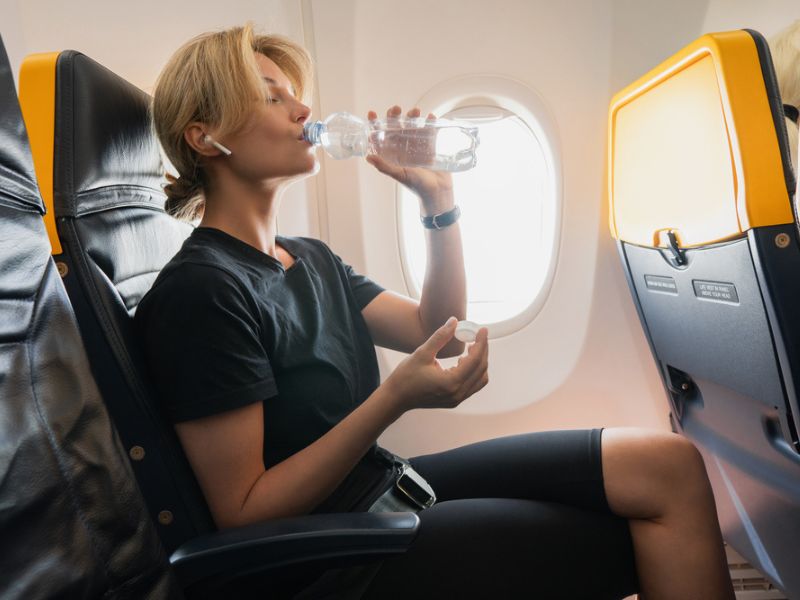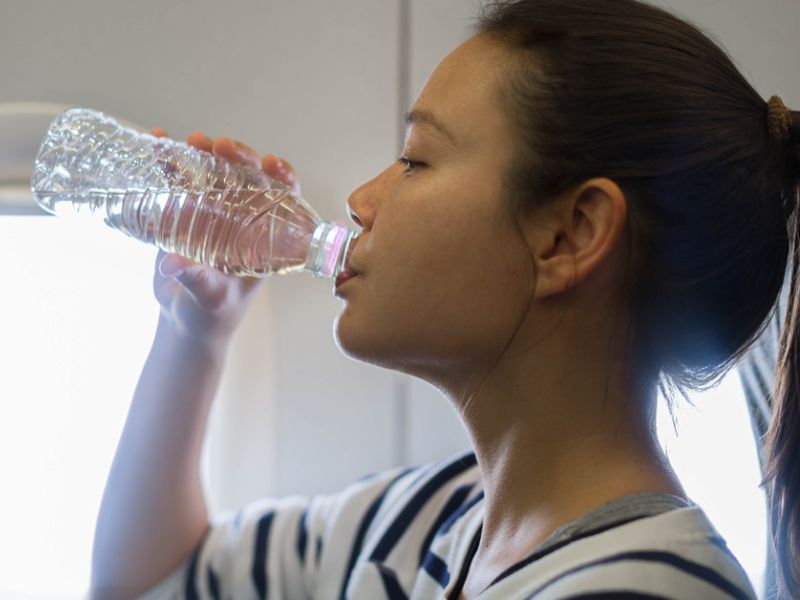Several factors can worsen air travel unnecessarily. Forgetfulness about snacks, as airlines are becoming more frugal with their offerings, and undesirable seat placements, such as the back row near the restroom. Overlooking compression socks is a mistake for some. Dehydration on flights is often underestimated. High airport water costs and unpleasant plane restroom use lead to reduced in-flight water intake for many.

Image Credit: Shutterstock/Blackday
According to Tanya Mezher, a registered dietitian and lead functional medicine practitioner at Malla, avoiding excessive water intake is a misconception. She explains that airplane conditions differ significantly from daily experiences on the ground. Airplane cabins have more extraordinary, drier air and lower pressures, with humidity levels as low as 10-20%. It leads to rapid moisture loss from the respiratory system, skin, and eyes. Prolonged sitting also shifts the fluid balance to the lower extremities, altering blood viscosity and potentially increasing fluid loss.
The Importance Of Hydration During Air
Travel
Proper hydration, crucial for our 55-60% water-based bodies, prevents symptoms like dizziness, fatigue, and increased heart rate during air travel. Dehydration worsens anxiety, affects digestion, and compounds the challenges of changing environments and time zones, leading to an unpleasant arrival.

Image Credit: Shutterstock/christinarosepix
Staying Hydrated: Helpful Tips
Stay hydrated without more bathroom trips by boosting electrolytes, advises Maggie Michalczyk, a registered dietitian and founder of Once Upon a Pumpkin. She recommends adding electrolyte powders or tablets to water to replenish minerals lost through sweating and maintain hydration levels. Coconut water is another option. Avoid caffeinated and alcoholic drinks, which increase the need to urinate and cause dehydration. Opt for foods with high water content for added hydration.